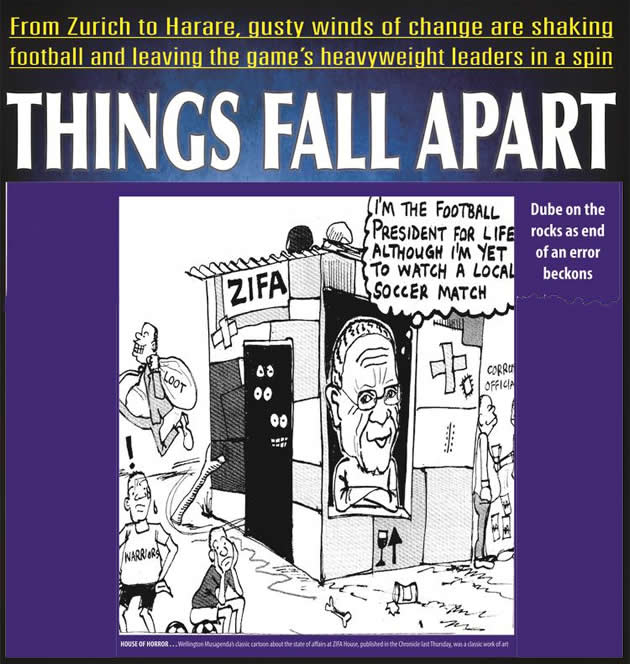BOLD, BEAUTIFUL AND LOUD

 Bornwise Mtonzi Lifestyle Reporter
Bornwise Mtonzi Lifestyle Reporter
There are different things that people would spend money on, some prefer to buy sculptures, portraits, paintings and others keep pets. Dogs and cats are pretty standard with a few unusual ones like snakes and lizards. Now a new craze seems to have hit Harareans as they go for the loud, bold and beautiful.
Parrots appear to be the latest must have two-in-one; décor item and pet. According to Wikipedia, there is debate within the scientific community over whether some talking parrots also have some cognitive understanding of the language. Birds have varying degrees of talking ability
The prices for the brightly coloured birds with the capacity for speech range from $200 to a high of $1 000. They are available from several outlets including one in the city centre and another in Westgate. The biggest attraction of parrots is their ability to mimic human speech.
“One thing that I love about these birds is that they are so nice and friendly, if you give them proper care you will love them and my children love them as they can also learn something from them. So I wouldn’t worry about spending money on them,” said a parrot owner who identified himself as Spenser.
This writer was referred to Spenser by a parrot seller from Westgate.
The bird seller said just like one chooses a particular breed of dog or cat to fit with their lifestyle, so must one consider the parrot that they take to brighten their home and add to the sounds.
“The African Greys tend to speak earlier and are generally more intelligent. They understand what they are saying which means you must be careful about never teaching them words that can lend you in socially compromising positions.
“I mean if you teach this bird to swear then I can promise you that the moment your mother-in-law walks in, it will let rip. And once they learn a word, it is a struggle to get them not to use it.”
He said the breeds falling under this species are generally suitable for people who live alone as they can be rewarding companions but they do not fit in well with more boisterous crowds like a pack of rowdy kids.
Tanzania is Africa’s biggest exporter of parrots with the Congo region also producing a good number.
“The Amazon parrots are more suited to larger groups as they are easy going and really thrive when they get a lot of attention from more people,” said the seller.
Other breeds of parrots to be domesticated include the Military Macaw, Senegal parrots, Indian ring neck, blue fronted Amazon and the Patagonian conure.
The Blue and Gold talking parrot is said to have the best longevity probability of the lot.
The bird seller warned against buying a parrot on impulse saying that one must be committed for life as the birds live for long.
“Macaws have been known to survive for more than 100 years while African Greys generally last well beyond 50 years. That is way more than your average dog or cat, so you really need to decide that you want a parrot for life before you get one,” he said.
On the other hand he said a parrot is low maintenance as it only needs bird seed and regular cleaning of its cage.
Tapiwa Saidi said that most people who come to buy birds from him preferred what he termed as “hand-raised” parrots which he said are the ones that end up talking and that these birds if handled well are friendly and easy to play with.
He said the majority of the birds start learning to talk mostly at the age of three and half months which is about the same time that they start to recognise a regular face.
Thus this is the ideal time for a potential owner to take possession of the bird and build a relationship.
Tapiwa Saidi said some of his clients are people who grew up in homes with parrots and decide to buy their own later on in life.
“One thing that I have learnt from my customers is that some take it from their parents and its part of their culture to have pets, especially the whites,” he said.
The Westgate bird seller said the adoption of birds as pets is growing across ethnical lines and he believes that it is because people are now more open to unusual hobbies and occupations.
“In the past in the Zimbabwean traditional culture people used to associate any unusual pets with witchcraft, which I think is a belief of the past now.”








Comments